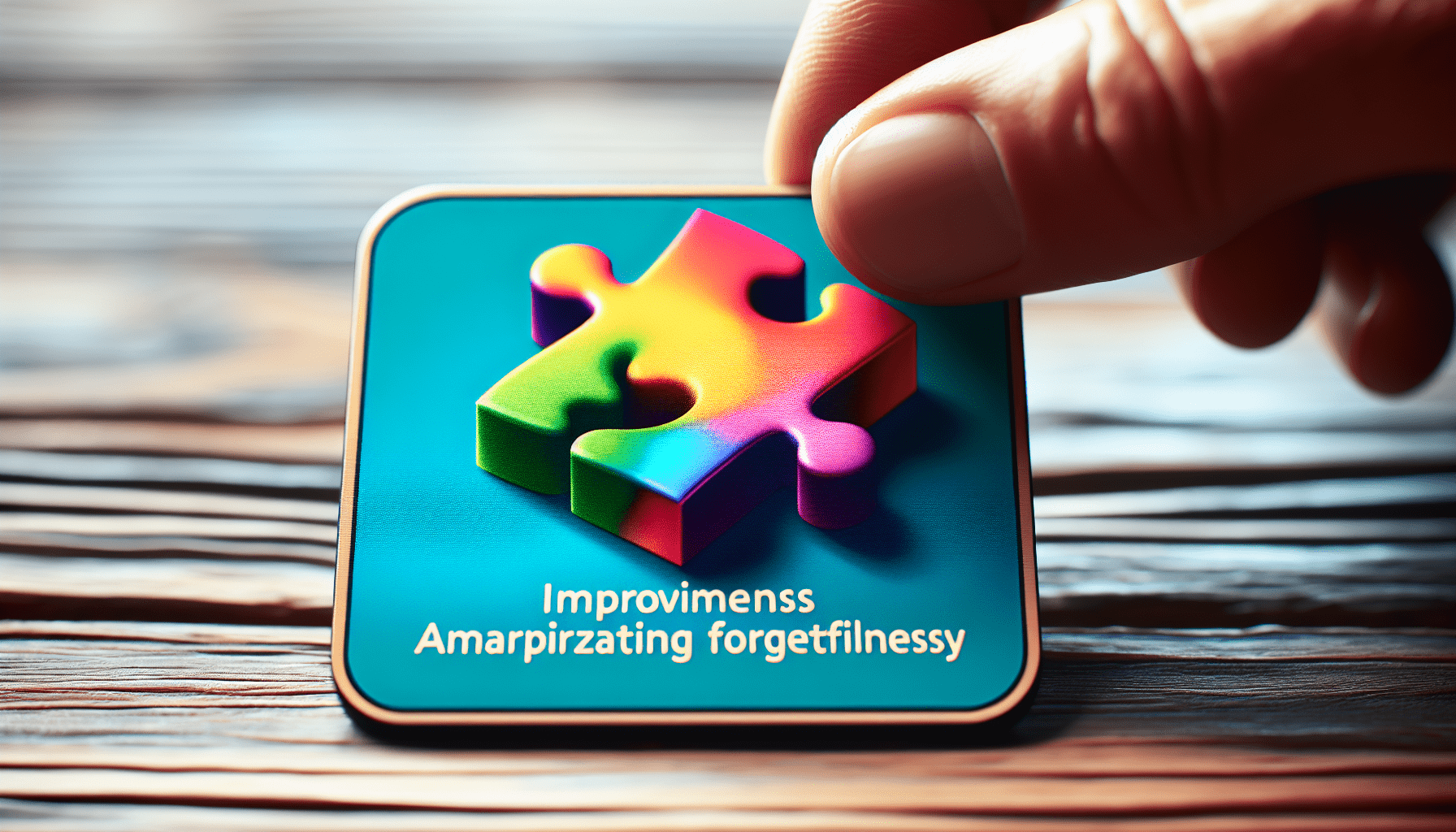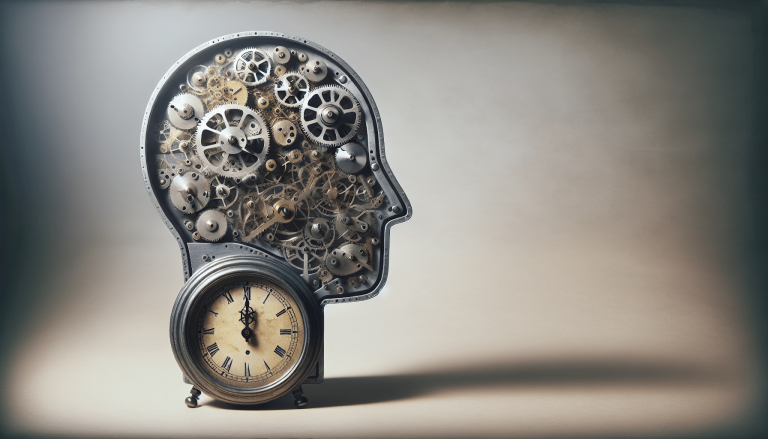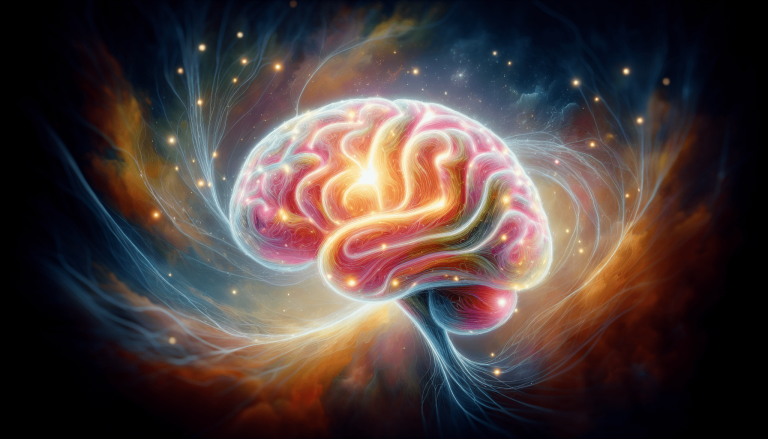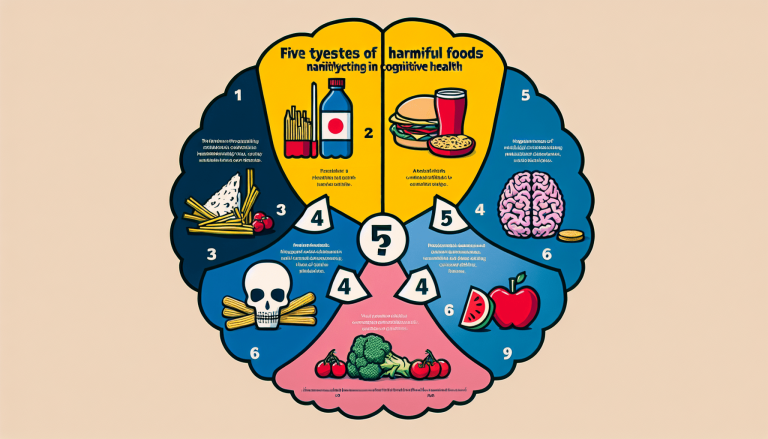How Do You Fix Forgetfulness?
Have you ever found yourself searching for your car keys, only to realize they were in your hand the whole time? Or have you had moments when you completely forgot someone’s name, even though you just met them? Forgetfulness is something that affects us all from time to time, and it can be frustrating. But fear not, because in this article, we will explore some simple yet effective strategies to help you fix forgetfulness and improve your memory. So get ready to say goodbye to those misplaced keys and hello to a sharper and more reliable memory!

Maintaining a Healthy Lifestyle
Get Enough Sleep
Getting enough sleep is essential for maintaining a healthy lifestyle. When you lack proper sleep, your cognitive function can be compromised, leading to memory lapses and forgetfulness. Aim for 7-9 hours of quality sleep each night to give your brain the rest it needs to function optimally. Establish a consistent bedtime routine, create a calming sleep environment, and ensure your sleep schedule aligns with your natural circadian rhythm.
Exercise Regularly
Regular exercise is not only beneficial for your physical health but also for your mental well-being. Engaging in physical activities increases blood flow to the brain, improves cognitive function, and enhances memory. Aim for at least 150 minutes of moderate-intensity exercise or 75 minutes of vigorous-intensity exercise per week. Incorporate activities you enjoy, such as walking, dancing, or playing sports, to make exercising a fun and sustainable habit.
Eat a Balanced Diet
A well-balanced diet plays a crucial role in supporting brain health and memory. Include a variety of nutrient-dense foods in your meals, such as fruits, vegetables, whole grains, lean proteins, and healthy fats. Avoid excessive consumption of processed foods, sugary snacks, and drinks high in added sugars, as they can contribute to cognitive decline and memory problems. Stay hydrated by drinking plenty of water throughout the day, as dehydration can also affect your cognitive function.
Developing Organizational Habits
Create a Routine
Establishing a daily routine can significantly help in combating forgetfulness and staying organized. Set specific times for waking up, meals, work or study sessions, and relaxation. Having a consistent schedule allows your brain to anticipate and remember important activities or tasks more effectively. Make sure to allocate time for breaks and leisure activities to maintain a healthy balance in your routine.
Use Reminders and Sticky Notes
Incorporating reminders and sticky notes into your organizational habits can be a simple yet effective way to jog your memory. Use digital calendars, smartphone apps, or physical notes to remind yourself of important dates, events, or tasks. Place sticky notes on your computer, fridge, or bathroom mirror to help you remember daily to-dos or important information. These visual cues can provide quick and easy references, ensuring that you don’t forget essential details.
Keep a Planner or Calendar
Maintaining a planner or calendar can be immensely helpful in staying organized and combating forgetfulness. Write down appointments, deadlines, and tasks in your chosen organizational tool. Whether it’s a physical planner, a digital calendar, or a combination of both, having a centralized place for tracking your commitments and responsibilities allows you to prioritize and plan your time effectively. Regularly review and update your planner to stay on top of your schedule.
Improving Concentration and Focus
Minimize Distractions
Reducing distractions is key to improving your concentration and focus, helping you stay engaged and remember important information. Create a work environment that is free from clutter, noise, and unnecessary interruptions. Put away your phone or use an app blocker to limit distractions from notifications and social media. Find a quiet, dedicated space where you can focus on tasks that require your full attention, allowing your brain to concentrate and retain information more effectively.
Practice Meditation or Mindfulness
Meditation and mindfulness techniques can help train your brain to stay present, calm, and focused. By incorporating regular meditation sessions into your daily routine, you can improve your ability to concentrate, reduce stress, and enhance your memory. Start with short sessions of 5-10 minutes and gradually increase the duration as you become more comfortable. Focus on your breath, observe your thoughts without judgment, and allow your mind to settle into a state of relaxation and clarity.
Break Tasks into Smaller Steps
Breaking down complex tasks into smaller, manageable steps can contribute to improved concentration and memory retention. When faced with a large project or a challenging task, create a detailed plan outlining each step you need to take. By tackling one step at a time, you can avoid feeling overwhelmed and increase your chances of remembering and completing the task successfully. Celebrate small victories along the way, and use them as motivation to keep moving forward.
Engaging in Brain-Stimulating Activities
Solve Puzzles and Brain Games
Challenging your brain with puzzles and brain games can significantly improve your cognitive function and memory. Engaging in activities like crossword puzzles, Sudoku, or brain training apps can strengthen neural connections, enhance problem-solving skills, and boost memory retention. Set aside dedicated time each day to engage in these activities, and consider exploring different types of puzzles to keep your brain stimulated and challenged.
Learn a New Skill or Language
Learning a new skill or language is an excellent way to keep your brain active and memory sharp. It stimulates different areas of your brain, improves cognitive flexibility, and enhances memory formation. Whether it’s playing a musical instrument, painting, coding, or becoming fluent in another language, immersing yourself in new learning experiences can provide lifelong benefits for your brain health. Challenge yourself to learn something new and make it a regular part of your routine.
Read Books and Engage in Intellectual Discussions
Reading books and engaging in intellectual discussions nourishes your brain and stimulates critical thinking and memory. Choose a variety of genres and subjects that interest you and make reading a part of your daily routine. Take notes, highlight important passages, and reflect on what you’ve read to reinforce your memory. Additionally, participating in intellectual discussions, whether it’s through book clubs, online forums, or in-person conversations, provides an opportunity to share ideas, challenge your thinking, and exercise your memory and communication skills.

Utilizing Memory Techniques
Use Mnemonics or Memory Aids
Mnemonics or memory aids are techniques that help you remember information by associating it with easily remembered cues or patterns. Techniques like acronyms, visualization, and rhymes can be powerful tools in enhancing memory. For example, when trying to remember a list of items, create an acronym using the first letter of each item. Visualize vivid images related to the information you want to remember, or create rhymes or catchy phrases to associate with specific details. These techniques can be particularly useful for remembering complex or abstract information.
Repeat and Review Information
Repetition and review play a crucial role in transferring information from short-term memory to long-term memory. When learning new material, make a habit of reviewing it periodically to reinforce your memory. Repetition can involve reading, rewriting, or reciting the information aloud. By revisiting the material at spaced intervals, you enhance your brain’s ability to retain and recall the information over the long term. Incorporate review sessions into your study or work routine to solidify your memory of important details.
Associate Information with Visuals or Emotions
Associating information with visuals or emotions can make it easier for your brain to encode and retrieve memories. When learning something new, try to create mental images or connect it to personal experiences or emotions. Visualize vivid scenes or draw diagrams to represent abstract concepts. Emotionally engaging with the information can also enhance retention, so try to make connections with how the information makes you feel. By tapping into the power of visualization and emotions, you can make memories more meaningful and easier to recall.
Reducing Stress and Anxiety
Practice Stress-Relief Techniques
Elevated levels of stress and anxiety can negatively impact memory and cognitive function. Engaging in stress-relief techniques can help reduce these effects and improve your ability to remember. Techniques such as deep breathing, progressive muscle relaxation, or engaging in hobbies can promote relaxation and alleviate stress. Find activities that calm your mind and body, whether it’s practicing yoga, listening to music, or spending time in nature.
Seek Support from Others
When stress and anxiety become overwhelming, seeking support from others can provide valuable assistance and comfort. Share your concerns and experiences with trusted friends, family members, or a support group. Talking about your feelings can help alleviate stress, gain new perspectives, and provide emotional support. Surrounding yourself with a strong support network can give you the strength and encouragement needed to navigate challenging times and improve your overall mental well-being.
Engage in Relaxation Activities
Incorporating relaxation activities into your routine can significantly contribute to reducing stress and anxiety, boosting memory, and improving overall mental health. Practice deep breathing exercises, listen to calming music, take warm baths, or spend time engaging in hobbies you enjoy. These activities promote a sense of tranquility, allowing your mind to unwind and recharge. Experiment with different relaxation techniques and find the ones that work best for you.
Improving Mental Health
Manage Depression or Anxiety Disorders
If you experience persistent forgetfulness or memory difficulties due to depression or anxiety disorders, seeking professional help is important. These conditions can negatively affect memory and cognitive function. Consult a healthcare professional who can provide a comprehensive evaluation, diagnosis, and treatment plan tailored to your specific needs. Proper management of mental health conditions can significantly improve memory and overall well-being.
Seek Therapy or Counseling
Therapy or counseling sessions can provide valuable guidance and support in managing forgetfulness and improving mental health. Cognitive-behavioral therapy (CBT) is a commonly used approach that focuses on identifying and changing negative thought patterns and behaviors that contribute to memory problems. A therapist can help you develop coping strategies, provide techniques to improve memory, and address any underlying issues that may be affecting your mental well-being.
Practice Self-Care
Engaging in self-care activities is essential for maintaining good mental health and memory function. Prioritize activities that bring you joy, relaxation, and fulfillment. This can include practicing mindfulness, engaging in hobbies, spending time with loved ones, or pursuing creative outlets. Taking care of your physical and emotional needs allows you to recharge, reduce stress, and improve your overall mental well-being.
Limiting Multitasking
Focus on One Task at a Time
Although multitasking might seem productive, it can actually impair memory and overall performance. When you divide your attention between multiple tasks, your brain has to constantly switch focus, leading to decreased efficiency and increased forgetfulness. Instead, practice single-tasking by focusing on one task at a time. Give your full attention to the task at hand, complete it, and then move on to the next one. By concentrating on one task at a time, you can enhance your memory and accomplish tasks more effectively.
Prioritize and Delegate Tasks
To avoid overwhelming yourself and minimize forgetfulness, prioritize your tasks based on importance and urgency. Break down tasks into manageable steps and assign deadlines to each one. Identify tasks that can be delegated or outsourced, freeing up your mental resources to focus on more critical responsibilities. By effectively managing your workload and prioritizing tasks, you can reduce stress, enhance productivity, and improve your memory.
Avoid Overcommitting
Overcommitting yourself puts unnecessary strain on your mental capacity and increases the likelihood of forgetting important details or tasks. Learn to set realistic boundaries and be mindful of your limits. Assess your commitments and evaluate whether you have the time and resources to take on additional responsibilities. Practice saying no when necessary to protect your mental well-being and prevent overload. By maintaining a manageable workload, you can enhance your memory and ensure that you can give your best to the tasks you undertake.
Socializing and Building Connections
Maintain Healthy Relationships
Strong and healthy relationships have a positive impact on your mental well-being and memory. Surround yourself with supportive and understanding individuals who contribute to your overall happiness and personal growth. Maintain open lines of communication with loved ones, friends, and colleagues. Engaging in meaningful conversations and social interactions not only improves your memory but also provides emotional support and a sense of belonging.
Participate in Social Activities
Actively participating in social activities can provide numerous cognitive benefits, including improving memory and mental agility. Attend social events, join clubs or organizations aligned with your interests, or engage in group activities. These interactions stimulate your brain and create opportunities for socializing, which can enhance cognitive function and memory retention. By incorporating social activities into your routine, you can foster connections and boost your overall well-being.
Join Support Groups
If you’re dealing with memory issues, joining support groups can be a valuable source of information, encouragement, and understanding. Connecting with others who share similar experiences can provide a sense of validation and empower you to find effective strategies for managing forgetfulness. Support groups offer a safe space for sharing concerns, asking questions, and learning from the experiences of others. By participating in a support group, you can gain valuable insights and support to improve your memory and overall well-being.
Seeking Professional Help
Consult a Physician or Neurologist
If you experience persistent or worsening memory problems, it’s important to consult a healthcare professional, such as a physician or neurologist. These professionals can assess your symptoms, perform necessary tests, and provide appropriate medical guidance. They can identify potential underlying causes of forgetfulness, such as medical conditions or medication side effects, and develop a treatment plan tailored to your specific needs. Seeking timely medical attention is crucial for identifying and addressing any underlying issues affecting your memory.
Consider Cognitive Behavioral Therapy
Cognitive-behavioral therapy (CBT) can be a valuable treatment option for individuals struggling with memory problems. CBT focuses on identifying and changing negative thought patterns and behaviors that contribute to forgetfulness. A therapist trained in CBT can help you develop coping strategies, address any underlying issues that may be affecting your memory, and provide techniques to improve cognitive function. By actively engaging in therapy, you can gain valuable skills to manage forgetfulness and enhance your overall well-being.
Explore Medication Options
In some cases, medication may be prescribed to help manage memory issues. Medications such as cholinesterase inhibitors are commonly used to treat memory problems associated with conditions like Alzheimer’s disease. However, medication options for memory enhancement are typically reserved for specific conditions and should be prescribed and monitored by a healthcare professional. Consult with your healthcare provider to determine if medication is a suitable option for managing your memory concerns.
Remember, while these strategies and techniques can be helpful in improving memory and combating forgetfulness, everyone’s experiences and needs may vary. It’s important to find the approaches that work best for you and consult with healthcare professionals for personalized guidance. By incorporating these practices into your lifestyle and seeking appropriate support, you can enhance your memory, maintain mental well-being, and lead a fulfilling and meaningful life.
Additional Resources

The health industry, as you know it, won’t be the same… Even top doctors are stunned…
This amazing 5 second hack can change any person at astonishing rates in a matter of days.
The pharmaceutical industry panicked when this video got leaked and they’ve already gathered their army of lawyers to take this down..







